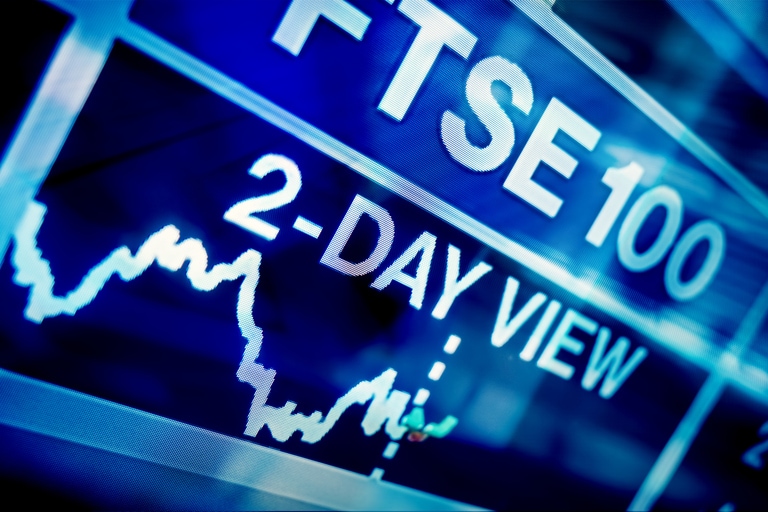Uncertainty over the prospect of a stimulus deal or economic aid package saw US markets finish last week on the back foot, as US politicians once again put party politics ahead of the people they are supposed to represent.
With a deadline fast approaching by year end, US lawmakers are once again split down the middle as two competing stimulus proposals do the rounds, one from a bipartisan group of lawmakers for $908bn and another favoured by US treasury secretary Steve Mnuchin, of $916n. West Virginia senator, Joe Manchin, who represents the bipartisan group of senators, has said that he intends to put forward the $908bn stimulus bill later today, however there is no guarantee that it will get passed, which means the procrastination could well go on for a few more days yet, as another deadline slips by. Nonetheless it still seems more likely than not we will probably see some form of deal by the end of 2020.
On the plus side, the Pfizer vaccine begins its rollout in the US this week, after being approved at the weekend, and this along with hopes of a new stimulus bill being signed off is helping Asia markets start the week modestly positive and this looks to translate into a modestly positive open here in Europe this morning.
On the subject of deadlines, the latest UK-EU trade talk deadline came and went at the weekend, as politicians on both sides agreed to keep talking. In reality the only deadline that matters now is 31 December, as the procrastination continues between EU and UK negotiators, with rules around the so-called level playing field and governance still at the heart of the disagreements between the two sides. It defies belief that the EU can agree a deal with the likes of Hungary and Poland over threats to the rule of law, and yet are unable to come to some form of agreement with the UK, an ally of longstanding, on a trade agreement.
It is in both parties' interest to come to a deal, yet here we are in a situation where the EU will compromise on the rule of law, but won’t compromise on the rules around a trade agreement. That’s not to say the UK has handled the talks well; they haven’t, and the last four years have been utterly shambolic. That doesn’t change the fact that there is a need for some form of deal that is able to smooth out any immediate disruption to trade relations between the EU and UK, as the potential for further economic dislocation caused by the coronavirus stepped up a notch at the weekend. A further sharp rise in coronavirus cases prompted German chancellor Angela Merkel to put Germany into an even harder lockdown until 10 January, as infections there continued to rise unchecked, despite the closure of bars, restaurants and pubs since November. The potential for a huge economic hit for the Irish economy is also a clear and present danger in the event of a no-deal outcome.
Whether or not we get a deal now is almost incidental to the fact that there will be a certain level of disruption come 1 January, whatever outcome we get. We are already seeing elements of turmoil largely as a result of Covid-19 all over the world, as well as some pre-Brexit and pre-Christmas stockpiling. There’s the further added factor that businesses don’t have the luxury of waiting to see which way the talks go; a certain amount of preparation has probably already been done, in terms of putting computer systems in place to handle any additional paperwork.
This uncertainty over Brexit appears to have been reflected in a net outflow of funds exposed to UK equities in the last couple of months, however that still hasn’t stopped the FTSE 100 from hitting its highest levels since the beginning of March.
Major forex pairs
EUR/USD – has thus far failed to move above the 1.2180 area, with wider resistance at 1.2230. Needs to stay above support at 1.2060/70 to maintain upward bias towards 1.2550. Only a move below 1.2020 negates the upside scenario
GBP/USD – currently holding above the 50-day MA and 1.3130 area. A break below 1.3100 opens up a move towards 1.2850. Need to get back above the 1.3420 area to stabilise and retarget the highs.
EUR/GBP – last week’s break above the 0.9100 area retargets the 0.9300 level and September peaks. A move back below 0.9080 retargets the 0.8980 area.
USD/JPY – continues to trade in a fairly tight range with resistance at the 104.70 area, and while below the risk remains for a move back to the November lows at 103.81.
CMC Markets erbjuder sin tjänst som ”execution only”. Detta material (antingen uttryckt eller inte) är endast för allmän information och tar inte hänsyn till dina personliga omständigheter eller mål. Ingenting i detta material är (eller bör anses vara) finansiella, investeringar eller andra råd som beroende bör läggas på. Inget yttrande i materialet utgör en rekommendation från CMC Markets eller författaren om en viss investering, säkerhet, transaktion eller investeringsstrategi. Detta innehåll har inte skapats i enlighet med de regler som finns för oberoende investeringsrådgivning. Även om vi inte uttryckligen hindras från att handla innan vi har tillhandhållit detta innehåll försöker vi inte dra nytta av det innan det sprids.






